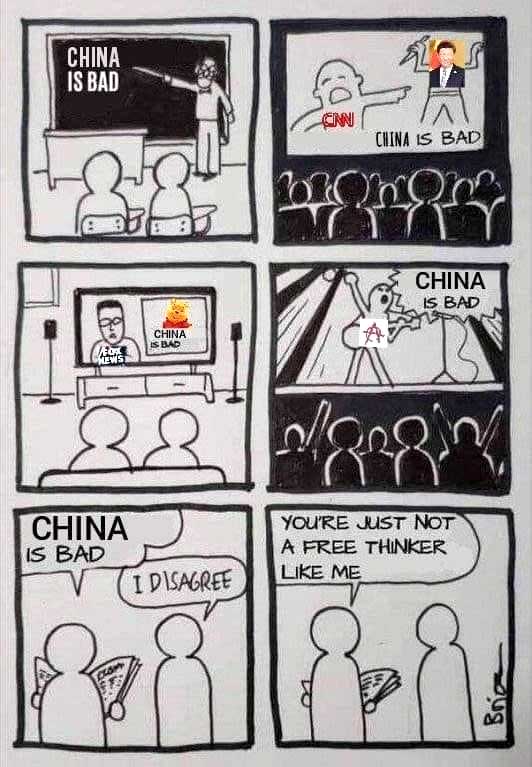
Why is there so yawning a gulf between the ways pundits like me, and most of our fellows, see the world? Are our eyes and ears, brains and beating hearts, differently wired? Hardly. Even our points of difference are few in number, though their implications are enormous:
- The mainstream fails to see – or in its analyses accord the primacy they merit – that there is a Western Empire, that it is imploding under the weight of its own contradictions, and that the flailings consequent on that implosion place humankind at greater peril than at any previous point in its history. We by contrast do see.
- The mainstream fails to see – or in its analyses accord the primacy it merits – a West ruled beneath a thinning veil of democracy by a rentier class of oligarchs, its interests not only antithetical to yours and mine but equally if less lamentably to its own survival. They do not see that industrial capitalism is beset by internal contradictions which need repeated state intervention to save it from itself, while the logic of finance capital delivers a crack-cocaine variant of the same. 1 We do see.
- The mainstream believes our corporate media – their ‘quality’ sections at least – capable of delivering accurate news and objective analyses of world events, even where to do so would be anathema to our really existing ruling class. We know that belief to be false.
- The mainstream’s understanding of the world is idealist, seeing ideas and intentions – good, bad and plug ugly – as history’s primary drivers. Ours is not. We do as Hercules Poirot would, and follow the money. In this respect we are materialists.
My list is not orthogonal. Take that creditor oligarchy. Its (item 3) capacity to shape, not only by media ownership but by advertising and sponsorship controls, our perceptions of the world is diminished to the extent we follow Poirot’s advice as per item 4. This allows us to discount as self-serving the reasons ‘our’ media give for their demonising sprees …

… and look instead to the real reasons for the rentiers’ fear of, for instance, China Rising:
In 2023 Michael Hudson published The Collapse of Antiquity. It advances a simple thesis. In the early civilisations of Sumer a new king would start his reign by cancelling debt. Why? Interest on debt rises exponentially while wealth creation from which debt is paid can at best rise logarithmically. The inexorable logic is therefore for power to accrue to a creditor oligarchy. Debt forgiveness derailed this tendency, but the new king had to be powerful enough to force it through. In today’s parlance he had to be the very thing liberals (labouring under the delusion ours is a democracy rather than creditor oligarchy) condemn in a Vladimir Putin or Xi Jinping.
He had to be Authoritarian. How else break the destructive and ultimately self destructive power of the oligarchs? 2 It was their failure to do this, Hudson argues, which did for the civilisations of Greece and Rome: collapsing as they did under the weight of debt which could not be repaid but would not be forgiven.
Broken: the implicit contract between the rulers and the ruled.
Nor do the four items work in isolation. They interact in ways gross and easily predicted, and in ways subtle and surprising. Take the outsourcing of manufacturing from West to global south (item 2). Cheaper and more pliant labour pools generated super-profits for the rentiers, yes, but as the Ukraine war starkly reveals, they eroded the West’s ability to protect the underpinnings of such larceny. Alarmed both by China’s rise and Russia’s post-Yeltsin refusal to join the West on terms dictated in Washington, NATO thought to defeat Russia in the proxy war it had spent years provoking (item 1). Fooled by misleading GDP disparity – between the services-led West and a Russia whose GDP was lower but more closely reflective of real wealth 3 – the West has been found stunningly incapable, on both the military and economic fronts, of bringing to a successful conclusion what it so recklessly engineered.
Did I mention China? Let me close by talking about cars, as useful a focus as semi-conductors and rare earths – and in any case embracing both – for my theme today. The Trump era trade war, said a former Chrysler executive in 2018, was:
… a missile aimed at Beijing but landing squarely on Detroit. First, it drove up the costs of parts US automakers sourced from China. GM and Ford both reported that Trump tariffs in 2018 saddled each with an additional $1bn in steel and aluminum costs. Secondly, it likely accelerated the globalization of Chinese companies looking to circumvent trade rules by making investments beyond their own borders.
This quote comes from a useful yet, at ten minutes forty-two, concise look at China’s EV output. It’s from CNBC so won’t be adopting the perspective I advocate. Then again, it doesn’t have to. Sometimes we can let facts do the talking. Do bear in mind though that cars are but one aspect of a much bigger picture, for which you will need the superior explanatory power of what I and others are advocating.
* * *
- The far left’s refusal to distinguish on the one hand China’s state-monitored industrial capitalism, its big banks firmly outside the private sector; on the other the usurping of state control by the West’s oligarchs, leads it to dismiss China as a progressive force. Rather, crying plague on China and the West both, it embraces (or pays lip service to) a fantasy of violently overthrowing capitalisms armed to the teeth, versed in all the dark arts, and wielding tools of surveillance beyond the wildest dreams of the 20th century totalitarianisms. This, moreover, in a West whose export of industry has eroded the very socialising conditions – an exploitation experienced en masse in the huge dark Satanic mills of Marx’s day – which led him to see the proletariat as the only force with both the means and the motive to take humanity into socialism.
- For how Putin reined in Russia’s oligarchy, with the unwitting help of the West, see Scott Ritter’s brief but outstanding video in Think you have Putin’s number, huh?
- The West not only failed to factor in the tighter fit between Russia’s GDP and her real economy. We now have it from the horse’s mouth – a thoroughly
imperialist“globalist” World Bank – that its smug leaders also undervalued that GDP.
